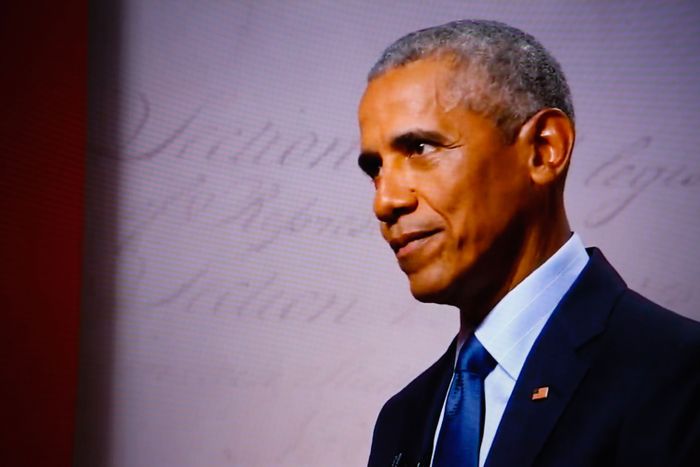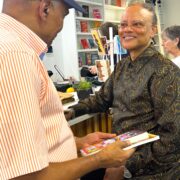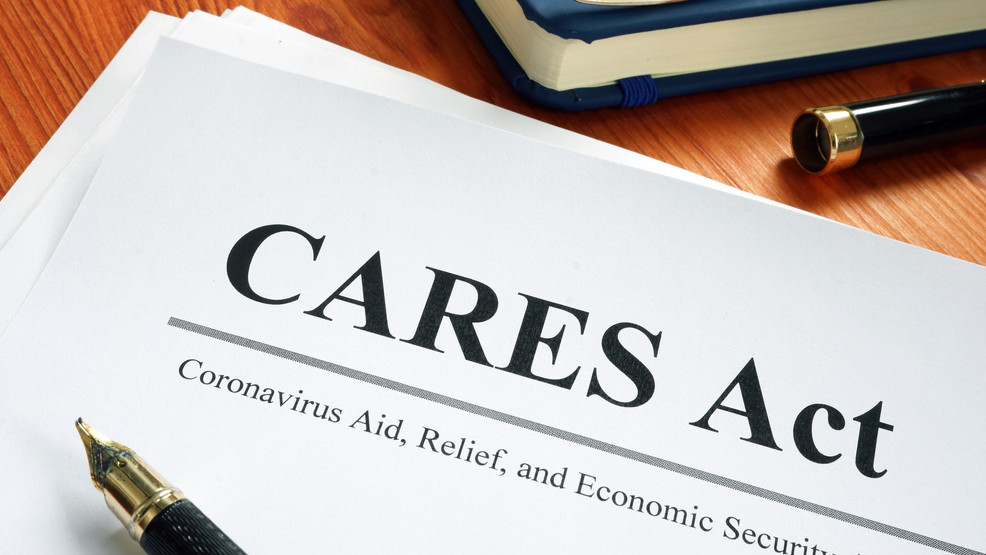
By Gabriel Debenedetti and Benjamin Hart
Barack Obama issued a dire warning during his Wednesday night Democratic National Convention speech, and Kamala Harris formally introduced herself as Joe Biden’s running mate. I spoke with political correspondent Gabriel Debenedetti about their remarks, as well as the evening’s focus on women.
Ben: Last night, after another whirlwind of speakers including Elizabeth Warren, Nancy Pelosi, and Hillary Clinton, Barack Obama delivered the harshest criticism he has yet leveled at President Trump. His address, live from the Museum of the American Revolution in Philadelphia, was laced not only with Obama’s version of anger — Donald Trump hasn’t grown into the job because he can’t,” he said — but also a certain level of fear, as our colleague Jonathan Chait noted. There was no mistaking what he thinks is on the line in November. Is this the speech Dems were hoping to get out of the former president?
Gabriel: Yeah, this is a speech that a lot of Democrats have been hoping Obama would give for about 3 3/4 years now. He’s always been very careful about timing it, though, and clearly calculated that this was likely to be his moment of biggest impact. It’s hard to argue with that: it’s not exactly like there’s a “campaign trail” for him to hit for Biden these days. But it was a speech that didn’t just go after Trump — if you re-read it, you’ll see the actual Trump excoriations were fairly brief compared to the broader point about the stakes of the election, mixed in with some Biden praise — which a lot of liberals wanted, but Obama always resisted.
His big fear was always that his emergence would be portrayed and perhaps dismissed as a back-and-forth with Trump — who, accordingly, live-tweeted the speech in manic all-caps last night. But now was the time, he thought. And it was extraordinary in the sense that we have never, in modern history, seen a president talk about his successor like this. They don’t always like the person who replaces them, of course. Truman and Eisenhower were famous for this. Teddy Roosevelt ran against his successor, Taft! But that was 108 years ago, and since then we haven’t seen a former president make a case like this — that the current officeholder is simply not up to the job that he’s held for nearly a full term.
Ben: If Trump loses, I expect we may, may just see a repeat of that dynamic in a few months, magnanimity not being one of his virtues. Anyway, does last night signal the beginning of more of these kinds of appearances for Obama? As you said, he has been very careful about when to pop up and speak out. But now we’re hitting the stretch run of this thing.
Gabriel: Well, maybe. It wouldn’t be shocking. But what, exactly, would that look like? He isn’t going to fill arenas in a pandemic, and I think the national appetite for a series of somber speeches from Obama might be pretty low once you exit the realm of people who miss him already and will vote for Biden anyway. Will he appear in Biden ads, though? Yeah, I’d be surprised if he didn’t.
Ben: He was a tough act to follow yesterday for Kamala Harris, who gave a speech against the backdrop that – rare for this week – looked like a traditional convention set. She ran through her remarkable biographical details and again clarified the stakes of the election – saying the country was at an “inflection point.” At times her speech did feel a little platitude-heavy; did you think it did what it needed to do?
Gabriel: I’ll start by saying that we generally overestimate the importance of these things — especially speeches like the VP nomination acceptance. I mean, do you remember any of them from recent years aside from Sarah Palin’s? (Which is memorable for the wrong reasons.) That said, it was definitely not optimal to have to follow Obama, but Harris’ (re?)introduction to the electorate was fairly smooth. She made sure the historic significance of her nomination wasn’t missed — and it wasn’t — and then ticked through a bunch of points that will sound pretty good to Democrats, without going into too much detail on any one of them. Which is basically the MO of the Biden campaign, so I’m not sure why anyone would be all that surprised.
The setting, though, was strange. I understand the wish to keep some traces of convention tradition by putting her (and Biden) on an arena floor stage. But it just felt…cavernous? Maybe the point was to highlight the unique horror of our moment, how our places of work and entertainment are standing empty. Or something? Many of the most effective set-piece moments of this convention so far have been in intimate, straight-to-camera speeches, or cameos with interesting backdrops.
All that said, who cares? I highly, highly doubt this is what voters who just want to get to know Harris a bit more are focused on. And we can’t underestimate the power of representation, which she talked with me about during the campaign, as something of which she is very conscious. For one thing, the evening focused heavily on Democratic women — not just Hillary Clinton and Nancy Pelosi and Elizabeth Warren and others, but the wave of them who have risen to power during the Trump era, too, representing the party’s heart (and base). Harris, of course, would be the first woman to serve as vice-president. And she is the first Black woman and first Asian person on a presidential ticket. Let’s not let an awkward 30 seconds of waving without the cheering crowd shots were used to distract us from that.
For more on this article go to: www.nymag.com









